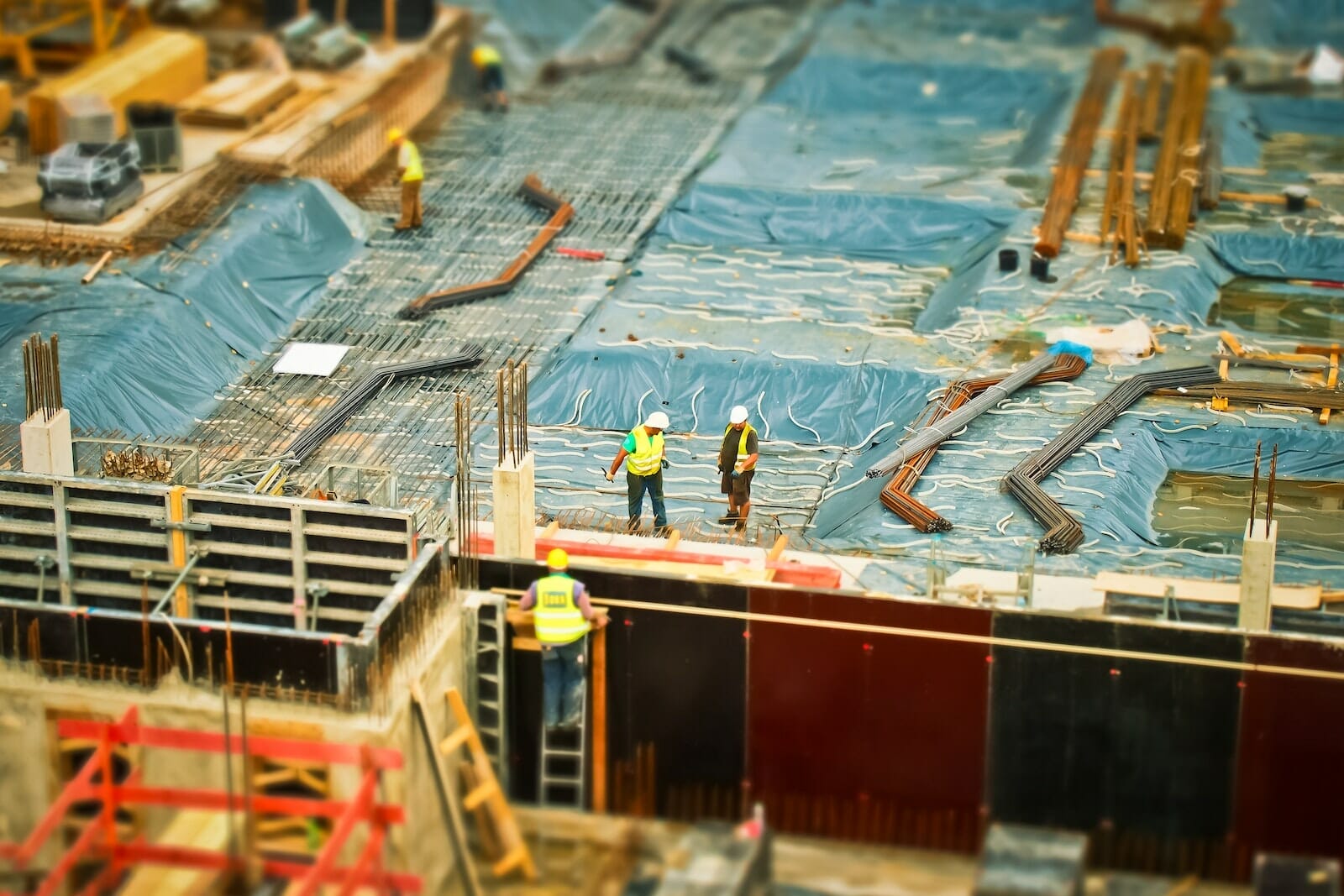- How do I find and vet potential contractors to build a house?
- What questions should I ask when interviewing potential contractors?
- What are red flags to look out for when choosing a contractor?
- How can I check a contractor’s references and see examples of their previous work?
- What licenses, insurance and bonds should a contractor have before starting my house build?
- Should I get multiple bids and how do I compare them accurately?
- What should be included in a contract with my chosen builder?
- How much should I budget for a new home build and what factors affect the cost?
- How do I ensure the build stays on schedule and on budget?
- What are the steps in the home building process from start to finish?
How do I find and vet potential contractors to build a house?
The process of finding and vetting contractors is one of the most important steps when building a new home. You want to find experienced, reputable builders that can construct your dream home on time and on budget. Here are some tips for finding and vetting contractors:
- Ask for recommendations. Talk to friends, family, neighbors or colleagues who have built a home recently and ask for contractor recommendations. Word-of-mouth referrals are often the best way to find good options.
- Check online reviews. Look up contractors on sites like Yelp, Google, and the Better Business Bureau. Read through reviews carefully looking for red flags. Make sure they have consistently positive reviews over a long period of time.
- Look for relevant experience. Make sure the contractors you consider have extensive experience building homes similar to what you want. Custom homes, green building, etc require specialized expertise.
- Verify proper licensing. Check that the contractor has an active license to operate in your state. They should also carry general liability insurance and worker’s compensation.
- Interview contractors in person. Once you’ve identified 3-5 potential builders, interview them in person. Prepare questions about their experience, processes, communication style, costs, etc. Pay attention to how professional and responsive they are.
- Check references. Ask contractors for 2-3 recent client references. Follow up with their previous clients and ask questions about their overall experience, quality of work, timeliness, etc.
- Verify registration with the state. Your state contractor’s board can verify registration status and whether there are complaints on file.
- Request bids. Have 3-5 contractors provide a detailed bid for your project scope. Compare bids carefully looking at specifics like materials and inclusions.
- Trust your gut. Your comfort level and rapport with the contractor is also important. They will be a big part of your life during the build process.
Taking the time to thoroughly vet contractors on the front end will help ensure you find the right partner for building your dream home.
What questions should I ask when interviewing potential contractors?
Interviewing potential contractors is a crucial step in finding the right home builder. Asking the right questions will help you identify experienced, qualified candidates and gain insight into how they operate. Here are some key questions to ask:
- How long have you been in business? Look for contractors that have been building homes successfully for 5-10+ years. They should have extensive experience under their belt.
- How many homes have you built in the last 2 years? More experience translates to more refined expertise. Look for builders doing 5+ custom homes per year.
- What types of homes have you built? Make sure they have expertise in your type of home – custom, luxury, green building, etc.
- Are you licensed, insured, and bonded? Verify they carry the required licenses and insurance policies to protect you legally during the build.
- Who will be my main point of contact? Understand exactly who you’ll interface with daily during the home build process.
- What is your communication style during a project? Make sure it aligns with what you prefer in terms of frequency, transparency, etc.
- Can you provide 2-3 recent client references? Speaking with past clients provides first-hand insight into their reputation.
- What is your bidding process like? They should provide a detailed bid with specifics on materials, scope inclusions, and timeline.
- How do you approach scheduling and timeliness? Look for systems and processes that keep projects on schedule and budget.
- How do you handle change orders and overages? Aim for a transparent process with agreed upon pricing before extra work.
- How much supervision will be on site each day? More supervision leads to better quality control and less issues down the road.
- What warranties and guarantees do you provide? Good builders stand behind their work long after you move in.
Asking the right questions during initial interviews can help you zero in on the best contractor for your upcoming home build.
What are red flags to look out for when choosing a contractor?
Choosing the wrong contractor to build your home can quickly turn into a nightmare. Be on high alert for these red flags during the vetting process:
- Lack of references – Any quality contractor should be happy to provide recent customer references. Be wary if they hesitate or ignore the request.
- No license or insurance – Licensed, insured builders are a must to protect you legally. Walk away if they can’t provide proof.
- Vague bids – The bid should be very detailed with specifics on materials, inclusions, timelines, etc. Lack of detail is a concern.
- Just a PO Box address – A physical office location is preferred. Just providing a PO Box rings alarm bells.
- Requests large deposit upfront – It’s reasonable for 10-25% down but more is suspicious. Make payments tied to timeline milestones.
- No track record of completed projects – Look at examples of previous work with customer testimonials. Lack of proof is worrisome.
- Can’t provide supplier/subcontractor names – Ask who they use and verify the relationships exist.
- Sole proprietorship – Small teams working independently pose more risk. Larger firms have more accountability.
- Doesn’t provide a contract – Detailed contracts protect both parties. Oral agreements leave you vulnerable.
- Negative online reviews – Concerning trends in reviews online should make you think twice.
- Excuses or defensiveness – Good contractors will answer your questions clearly without excuses.
Trusting your gut feeling during interviews is important too. Shady contractors tend to reveal themselves if you know which red flags to watch out for.
How can I check a contractor’s references and see examples of their previous work?
Checking a contractor’s references and seeing their previous work is an essential due diligence step before hiring them to build your home. Here are some tips to dig deeper:
- Ask for 2-3 recent references – Get contact info for customers from projects in the last 6 months. Similar size/budget projects are useful.
- Speak to references directly – Set up phone calls rather than relying on email. You’ll get more nuanced insights on the pros/cons.
- Ask specific questions – Don’t just ask if they were satisfied. Inquire about communication, timeliness, handling problems etc.
- Verify examples of work – Don’t just take their word for it. Physically drive by recent projects and take notes.
- Look at online reviews – Check for any reviews on Google/Yelp/etc. Patterns of issues are revealing.
- Ask to see their portfolio – Many builders have before/after photo examples and visuals to showcase their expertise.
- Ask about subcontractors – Find out which electricians/plumbers/roofers they partner with. Cross-check them as well.
- Request a lien release – Ask for proof that a previous project’s subcontractors were paid. This helps verify financial responsibility.
- Search public records – Your state licensing board will list any infractions/disciplinary actions taken against them.
- Trust your intuition – Note any hesitancy, defensiveness or holes in the information they provide.
Taking the extra time to thoroughly check references will help avoid headaches from choosing the wrong builder. The proof is in the details of their previous work.
What licenses, insurance and bonds should a contractor have before starting my house build?
Before you hire a contractor to start building your home, make sure to verify they have the proper credentials in place for legal protection:
- Contractor’s License – Most states require a contractor’s license which involves bonding, testing and insurance requirements. confirms they are registered to operate.
- General Liability Insurance – This protects against property damage or bodily injury caused by the contractor. Require at least $1 million coverage.
- Workers Comp Insurance – This covers injuries to workers on your job site. Lack of proper workers comp poses financial risk.
- Builder’s Risk Insurance – This specialized policy covers materials and property during the construction phase. Protects against theft, vandalism, accidents.
- Surety Bonds – Require both a performance and payment bond from the contractor. This guarantees their work and that subcontractors/suppliers will be paid.
- Occupational Licenses – Verify specific licenses for plumbers, electricians, HVAC specialists based on the work they will perform.
- Business License – Check if a state or local business license is required for home builders in your area. This confirms they comply with regulations.
- Project Permits – Make sure all required permits from the city/county are in place before work begins on site. Failure to get permits can jeopardize the project.
- Reference Checks – Talk to past clients to confirm the insurance policies and bondingwere in place for their projects.
Ensuring your chosen contractor has the proper credentials protects you financially and legally in case issues arise during your home build. Never waive these requirements.
Should I get multiple bids and how do I compare them accurately?
Getting multiple bids is highly recommended when building a home to provide cost and vendor comparisons. Here are some tips for making bid comparisons accurately:
- Get 3-5 bids – Don’t rely on just 1-2 bids which could inflate costs. Cast a wide net with several companies of similar size and experience.
- Compare line items – Go through each line of the bid to compare specific materials, brands, sizes and grades side-by-side. Watch for lower grade items that reduce costs.
- Clarify scopes of work – Make sure each part of the project scope is included in all bids. Missing areas mean incomplete data.
- Confirm timeline estimates – Ask clarifying questions if completion timelines seem unclear or too aggressive. Hidden delays can increase final costs.
- Review inclusions/exclusions – Some bids may exclude key items that are buried in fine print. This skews comparisons.
- Check math thoroughly – Errors in quantity estimates or unit costs can distort the bottom line. Re-add totals carefully.
- Ask about cost overruns – Understand contingencies and overage clauses in the contract. Big variations signal risk.
- Compare intangibles – Factors like experience, communication style and professionalism also impact the process.
- Trust your gut – Technical aspects aside, go with the builder you feel most comfortable with overall.
While the lowest bid may be tempting, keep quality as your top priority. Analyze bids closely to find the best value contractor for your project.
What should be included in a contract with my chosen builder?
A clearly written, comprehensive contract between you and your chosen home builder is essential before breaking ground. Key elements to include:
- Contact info – Full legal names and contact details for all parties involved.
- Project scope – Highly detailed description of every aspect of the work to be performed based on the agreed upon plans.
- Materials list – Specify product brands, sizes, grades, colors and model numbers. Attach actual spec sheets if possible.
- Timeline schedule – Lay out milestones with specific target dates when portions of the work will be completed from start to finish.
- Pricing breakdown – All costs itemized for materials, labor, taxes, fees, permits etc. Specify any upcharges clearly.
- Payment schedule – Defines the deposit amount, progress payments to be made at each milestone and final payment terms.
- Inspection requirements – Details who will conduct inspections, which stages will be inspected, and procedures for any required remediation or change orders.
- Permits – Delineate which party is responsible for securing required permits for the project before work begins.
- Insurance coverage – List types and minimum dollar amounts of liability, workers comp, builders risk coverage required.
- Warranties – Length and coverage terms of any product or workmanship warranties to apply post construction.
- Contingencies – How cost overruns, delays, change orders or unforeseen events will be handled if they arise.
- Dispute resolution – Defines mediation and arbitration processes if significant disputes occur.
Having an ironclad contract in place before construction starts reduces ambiguity and sets clear expectations between you and your builder.
How much should I budget for a new home build and what factors affect the cost?
Building a new custom home is a major investment. Setting an accurate budget requires looking at several cost factors:
- Size of home – Cost per square foot ranges from $100 to $200+ depending on size. Bigger homes are more efficient cost-wise.
- Number of bedrooms/bathrooms – More bathrooms especially raise costs due to plumbing and finishes.
- Customization – Personalized designs and layouts are more expensive than stock plans. Unique architectural features add cost.
- Material grades & finishes – High-end countertops, flooring and fixtures drive up budget quickly.
- Energy efficiency – Insulation, windows, HVAC systems for optimal efficiency have higher upfront costs.
- Land prep costs – Properties requiring clearing trees, extensive grading or septic systems add ton budget.
- Permits & fees – Budget for all required permits, tap fees, impact fees and inspections. This varies by location.
- Contractor selection – Higher priced custom home builders have more experience but cost more.
- Project management – If you hire a third party to manage the project, expect around 10% of total budget for their fee.
- Location – Construction costs can be 20% or more higher in some metro areas compared to rural zones.
- Financing costs – If financing construction loans, estimate interest and origination fees.
Leave a 10-20% contingency in your budget for cost overruns or unexpected expenses during the build.
How do I ensure the build stays on schedule and on budget?
Keeping your home building project on schedule and within the budget requires close oversight and communication. Here are some tips:
- Hire an experienced contractor – Their expertise in accurately estimating timelines and costs is invaluable.
- Get a detailed budget – Make sure the contractor provides an itemized breakdown of every cost including materials, labor and fees.
- Create a project schedule – Have major milestones documented with target dates to keep track of progress.
- Conduct regular site inspections – Visit the site frequently to check work matches plans and is on pace.
- Hold progress meetings – Sit down with the contractor biweekly or monthly to assess status and head off issues.
- Approve any change orders in writing – Don’t allow scope creep without agreeing on added time and costs upfront.
- Keep a contingency fund – Unplanned expenses pop up. A 10% contingency helps avoid budget surprises.
- Make timely payments – Staying on track with payments ensures work doesn’t halt waiting for checks.
- Document everything – Keep a detailed paper trail of invoices, approvals, change orders and any modifications.
- Communicate concerns quickly – If any work looks off track or wrong, speak up immediately to correct it.
- Stick to the contract – If disputes arise, rely on the contract terms for resolution parameters.
Careful planning, organization and accountability are key to keeping your builder focused on the right budget and schedule from start to finish.
What are the steps in the home building process from start to finish?
Building a new home is a complex process with many steps from start to finish:
1.Finalize Home Plans & Permits
- Work with an architect to design final home plans and secure required permits.
2. Select a Builder & Sign Contract
- Interview contractors thoroughly and finalize a contract with detailed scope, timeline and budget.
3. Secure Financing
- Finalize construction loan and financing terms with your lender if not paying fully in cash.
4. Order & Mobilize Materials
- Choose all design finishes. Builder orders windows, lumber, fixtures etc and sets up site access.
5. Prepare the Land & Pour Foundation
- Lot is cleared/graded. Foundation footings dug and concrete foundation poured.
6. Framing & Roofing
- Builder erects framing and roof trusses, installs roof shingles and encloses the home.
7. Windows, Doors, Siding
- Contractor installs all exterior doors/windows, hangs siding and adds gutters/trim details.
8. Mechanicals Rough-In
- Plumbing, HVAC and electrical work is roughed into the framed structure before insulation.







